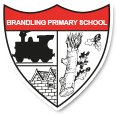Writing
At Brandling Primary School, we believe that embedding basic skills across the curriculum is essential for success.
Developing a love of reading, facilitates and develops outstanding writing. We work hard to promote opportunities across the curriculum which allows children to write in different genres and for different purposes.
The National Curriculum states that pupils should:
- Develop the stamina and skills to write at length
- Use accurate spelling and punctuation
- Be grammatically correct
- Write in a range of ways and purposes including narratives, explanations, descriptions, comparisons, summaries and evaluations
- Write to support their understanding and consolidation of what they have heard or read
The 2014 Curriculum divides writing skills into two dimensions:
- Transcription (spelling and handwriting)
- Composition (articulating ideas in speech and writing)
We recognise that both these elements are essential to success and we support the acquisition of both sets of skills through various methods. We recognise that these areas are clearly linked to the other aspects of English learning: speaking and listening
Our aims and connected provision
- Grammar is taught daily in Key Stage 1 through RWI. We teach grammar as a separate lesson daily in Key Stage 2
- We correct grammatical error orally/ written work (where appropriate)
- We have a systematic approach, we revisit key learning and build upon it in all areas from phonics, through to grammar and spelling during additional Literacy daily and writing across the curriculum
- We use high quality texts, modelling and shared/ collaborative writing to demonstrate good practice
- We encourage and promote ‘talk for writing’
- We follow Literacy and Language in Key Stage 2 to further Literacy skills
- We provide writing frames to support the least confident
- We provide time for planning, editing and revising
- We mark work in-depth and set targets with the pupil
- We use checklists for pupils to self-assess or peer assess, when appropriate so they can evaluate effectively
- We encourage joined handwriting to support spelling and speed
- We use drama and hot-seating to help pupils to think about another point of view
- Support for pupils with learning and motor difficulties
- Meetings with parents to help them support their child
Alongside the National Curriculum, we use Michael Tidd’s Writing for a Purpose to ensure coverage of skills and genres.
As a school, we have developed writing overviews for each class which show the opportunities for writing across the curriculum for each year group. Quality texts and class authors embed the link to reading and promote engaging stimuli for writing.
Spelling, Grammar and Vocabulary Development:
The National Curriculum makes clear that learning vocabulary is key to ‘learning and progress across the whole curriculum’ (p11) since it allows pupils to access a wider range of words when writing and for them to understand and comprehend texts efficiently.
Spelling
As a school we use Spelling shed to support our delivery of the spelling curriculum
Year 1 & 2 SpellingsYear 3 & 4 Spellings Year 5 & 6 Spellings
Handwriting
In KS1 children should be taught to:
- Sit correctly at a table holding a pencil safety and correctly
- begin to form lower-case letters in the correct direction, starting and finishing in the
- right place
- form capital letters
- form digits 0-9
- understand which letters belong to which handwriting ‘families’ (i.e. letters that are
- formed in similar ways and to practise these.
In Lower KS2 children should be taught to:
- Use the diagonal and horizontal strokes that are needed to join letters and understand which letters, when adjacent to one another, are best left un-joined
- Increase the legibility, consistency and quality of their handwriting [for example, by ensuring that the downstrokes of letters are parallel and equidistant; that lines of writing are spaced sufficiently so that the ascenders and descenders of letters do not touch].
In Upper KS2 children should be taught to:
- Write legibly, fluently and with increasing speed by:
- Choosing which shape of a letter to use when given choices and deciding whether or not to join specific letters choosing the writing implement that is best suited for a task.
Our aims and connected provision:
- We encourage our pupils to have a wide and growing vocabulary in a number of ways, these include:
- Spelling lists/ key words to take home and learn
- Display of key words linked to topics and subjects
- Using the correct vocabulary orally
- Further the understanding of grammar in KS1 on completion of RWI
- Be taught in Key Stage 2 discretely on a daily basis using the spelling programme Spelling Shed spellings, and should be integral within the teaching of other subjects
- In-depth word based lessons looking at patterns following RWI in KS1 and Spelling Shed in KS2
- Using dictionaries, thesaurus and similar programmes
- Carrying out systematic testing and providing feedback to pupils
- Targeted one to one/ small group support, where appropriate
Vocabulary
Vocabulary is a strong indicator of reading success (National Literacy Trust, 2017). At Brandling Primary School, we also know that a good understanding of a wide range of vocabulary supports success across the whole national curriculum. Therefore pupils are regularly taught new vocabulary in all areas of the curriculum. Tier 3 vocabulary, linked to the foundation subjects, can be found in each unit’s Knowledge Organisers.
Developing vocabulary occurs in two ways:
-
Through indirect instruction; using rich reading experiences to grow vocabulary ‘naturally.’ Paying attention to context to work out meaning and using background knowledge.
-
AND Through direct ‘robust’ instruction.
Vocabulary learning is taught in a fun and active way across the curriculum and
innovative ideas such as 'The Vocabulary Ninja', are used from EYFS to Year 6.
"Words unlock the doors to a world of understanding."



